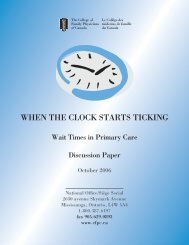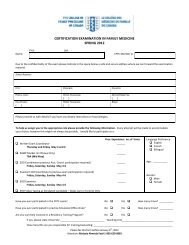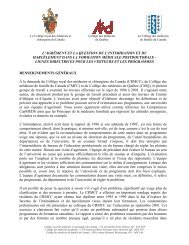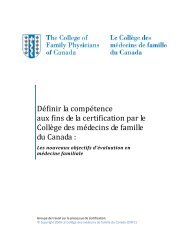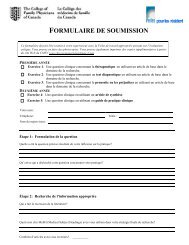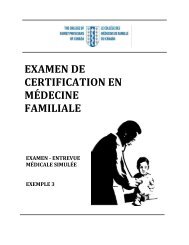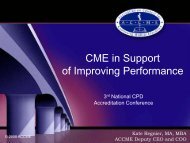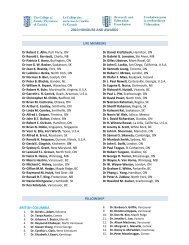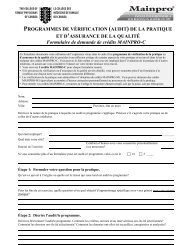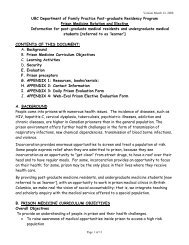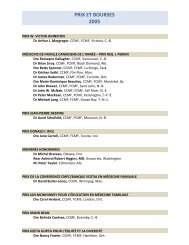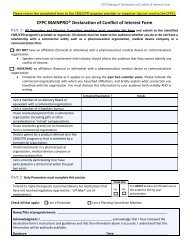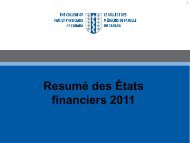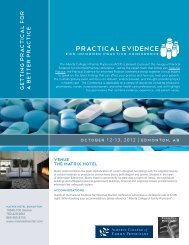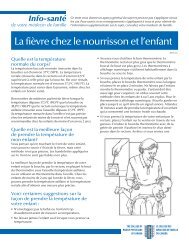The Red Book - The College of Family Physicians Canada
The Red Book - The College of Family Physicians Canada
The Red Book - The College of Family Physicians Canada
- No tags were found...
Create successful ePaper yourself
Turn your PDF publications into a flip-book with our unique Google optimized e-Paper software.
services, community services or seminars with marginalized populations, and scholarly work. Ifresidents are not taught by family medicine faculty, they should be placed in a clinical context inwhich the preceptors understand and respect the role and the educational needs <strong>of</strong> familymedicine learners. <strong>The</strong> family medicine residency program must plan and approve theseexperiences in consultation with the other specialty departments involved.<strong>Family</strong> medicine residency training must occur in clinical settings that enable residents tolearn the competencies required. <strong>The</strong> experiences arising from time immersed in family practicesettings are vital to the development <strong>of</strong> a resident’s overall competence and identity as a familyphysician. <strong>Family</strong> practice settings must provide residents with the opportunity to experienceboth the roles <strong>of</strong> the family physician and the scope <strong>of</strong> family practice. Residents must be able toestablish a small practice <strong>of</strong> their own for which they would assume major responsibility forintegrating the full care <strong>of</strong> those patients with whom they have continuing relationships. <strong>Family</strong>practice experiences should be organized to reflect appropriate patterns <strong>of</strong> practice, and residentsmust work together with and be supervised by effective family physician role models. It isexpected that residents will be engaged in core family medicine clinical experiences throughouttheir training program.While the curriculum must always provide for a sufficient continuity <strong>of</strong> learning contextand continuity <strong>of</strong> preceptors, sufficient exposure to different contexts <strong>of</strong> practice that reflectdifferent population health needs must also be provided.Just as practising family physicians work largely in <strong>of</strong>fice settings, so residents must bebased primarily in family practice <strong>of</strong>fice settings. Residents must provide clinical care acrossdifferent settings: hospital, long-term care facilities, and home care settings, as well as in the<strong>of</strong>fice. Residents must provide care to patients at every stage <strong>of</strong> life, from birth to death. Thisincludes care <strong>of</strong> children and adults, men and women, the elderly, and palliation and end-<strong>of</strong>-lifecare. A sufficient clinical experience in a rural practice setting must be provided to all residentsto ensure that the competencies and experience necessary to serving the needs <strong>of</strong> ruralcommunities are acquired.In order to learn the comprehensive nature <strong>of</strong> family medicine, family practice–basedpatient care activities must comprise the majority <strong>of</strong> the resident’s clinical experience. Ideally, aresident’s family practice experience would make up more than half <strong>of</strong> a resident’s clinicalexperience each week, with the exception <strong>of</strong> <strong>of</strong>f-service experiences that might require more18



